Record rides: Tommy Godwin’s 75,065 miles in a year
Perhaps one of the most incredible records ever set on two wheels, retold by Dave Barter.
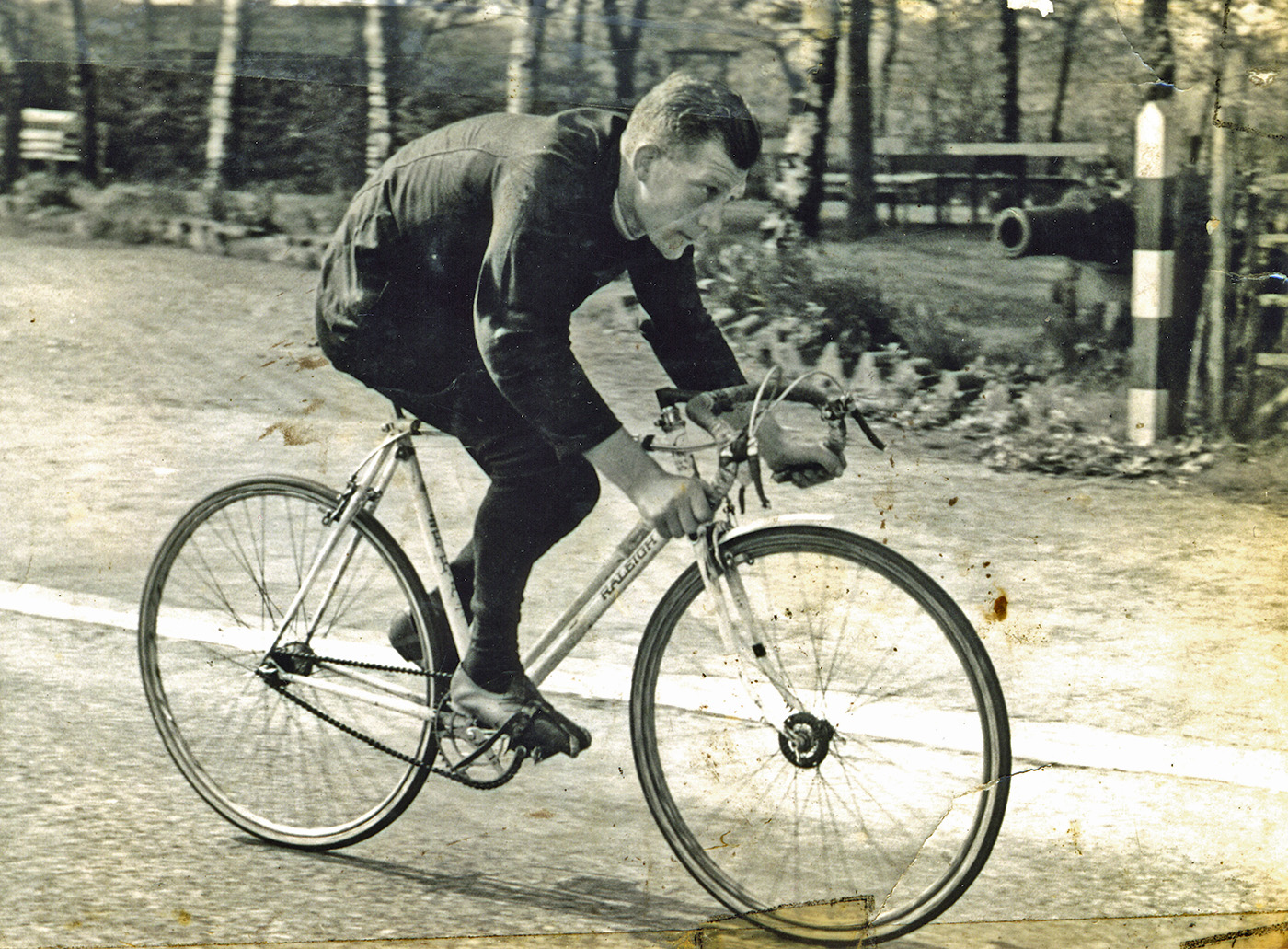
On January 1st 1939, Tommy Godwin set off on his bike. That year, as Europe entered into war, Godwin would embark on a record attempt that even now almost defies belief. Godwin was aiming for the cycling year record (now referred to as the Highest Annual Mileage Record) and would eventually reach 75,065 miles.
This through one of the harshest winters on record, a broken collarbone and one day off to meet with royalty.
>>>>Sign up to the CW5000 and see how far you can ride in a year
The cycling year record was first conceived in 1911, born out of a competition run by this magazine (then called Cycling, an Illustrated weekly) which challenged amateur cyclists to ride the highest number of centuries - a 100 mile ride - in a single year.
When Godwin set off the record was an already impressive 62,657 miles, but the omens were good. He was a highly proficient time triallist, anecdotally credited with hundreds of wins - the first of which was achieved while riding his grocery delivery bicycle - had national pride to restore and some healthy competition to spur him on.
The record at the time had been set by the Australian professional Ossie Nicholson. But British riders were quietly seething at Nicholson’s 1937 performance. Riding as a professional he had beaten two British contenders to push the record to a seemingly insurmountable mileage. It was time to reclaim it for Britain and on January 1st Godwin and two other British riders set out to do just that.
Edward Swann was the least known of the three, and soon retired with just 939 miles in the bag after a particularly bad crash. This left Tommy Godwin and Bernard Bennett to slug it out for the rest of the year. Bennett had attempted the record before, riding a credible 45,801 miles in 1937 but was seriously eclipsed by Nicholson’s massive total.
The latest race content, interviews, features, reviews and expert buying guides, direct to your inbox!
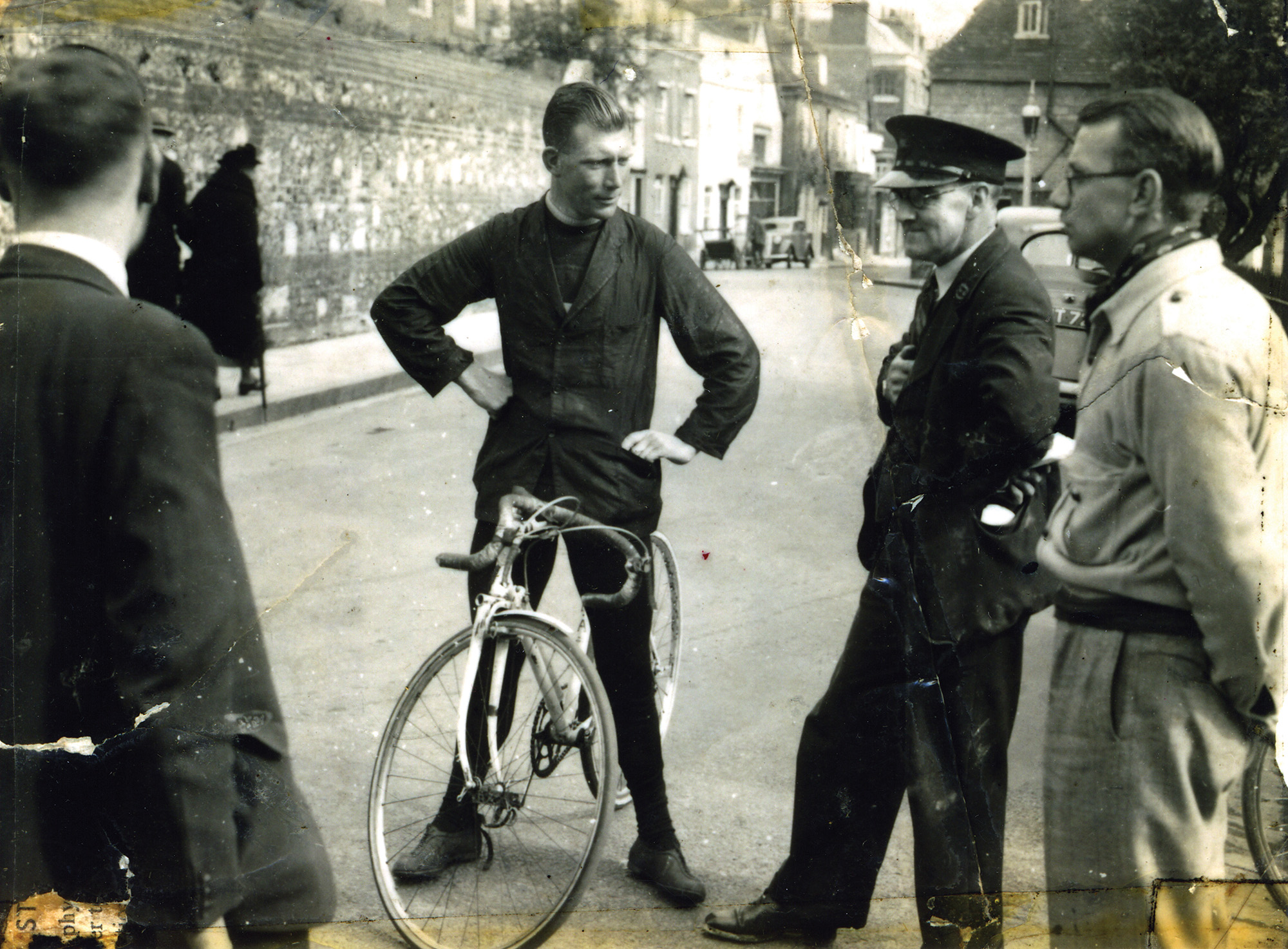
Tommy Godwin was a newcomer to the year record. Born in the Stoke-on-Trent area he started work as a grocer’s delivery boy, furiously pedalling his heavy bike around the Potteries before becoming one of the best British time triallists of his generation, winning many prestigious events. He was sponsored by Ley cycles to bring the annual record back home.
But Godwin and Bennett could not have picked a worse year to begin their attempt. The winter of 1939 was truly dreadful with sustained snow and ice blanketing a large portion of the country.
>>>>Subscribe to Cycling Weekly magazine for more features like this
The wily Godwin chose to ride in the few remaining areas that were clear of frost and regularly racked up anywhere from 109 to over 200 miles through the first month of the year. But it was far from easy.

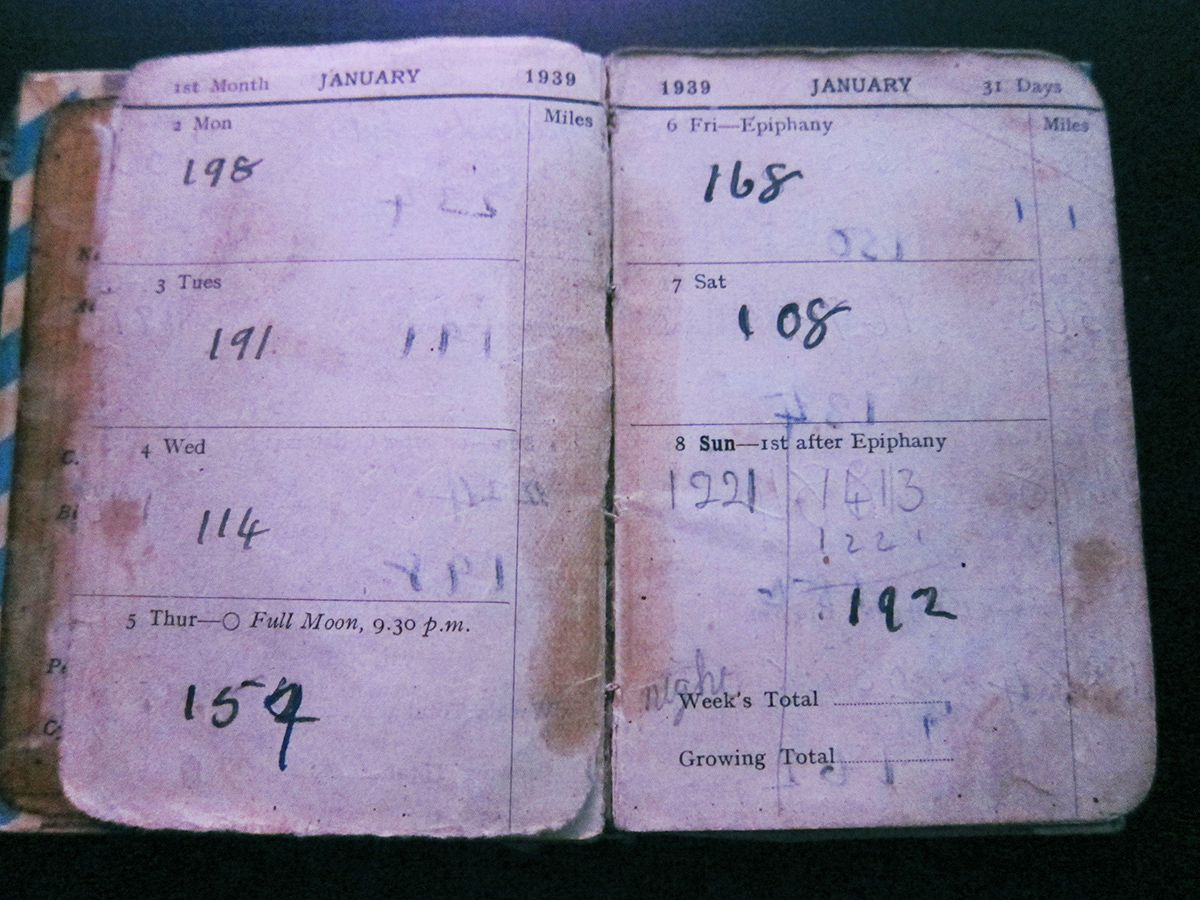
It was an idle boast in the pub that sparked my interest in Tommy Godwin, writes author Dave Barter. I was boring my acquaintances with details of a 90-mile ride that day when my friend Bill leaned forward and informed me that Tommy Godwin had probably ridden three times that distance. I’d never heard of Tommy or the year record but was confident Google would furnish me with more info?
In fact, there was very little, a few mentions on message boards, but no Wikipedia entry and nothing outlining his year. As an endurance cyclist I needed to know more. Fortunately, a magazine editor put me in touch with his family and the story began to unfold.
Tommy’s generosity was legendary. He’d given away almost every item of cycling memorabilia he’d owned. His family had very little but knew that he’d kept diaries during the record detailing his daily mileage.
I needed to track these down. Many phone calls, letters and emails to his old cycling friends proved fruitless until Paul Swinnerton of Swinnerton cycles mentioned that Neil Hemmings may be in possession. Neil’s mother and father were Tommy’s greatest friends. Sadly they’d passed away, but Neil had the diaries and kindly leant them to me.
Godwin had little time for his diary, which simply contains the mileage numbers and so a typical day of his year had to be pieced together from magazine articles. I spent hours painstakingly comparing the mileages with those published in cycling magazines held in the Coventry History Centre.
I also read through hundreds of old cycling magazines and newspaper articles to piece together the riders and their rides. I created a Wikipedia page outlining Tommy’s achievement; this stimulated the contribution of others who added profiles of the riders that had gone before him and filled in gaps in my knowledge.
The next question was how to tell the current generation of cyclists about the record? So I turned to Twitter and a little bit of programming to create an account in Tommy’s name that tweets his mileage every day along with an equivalent bike ride. You can follow this account @yearrecord.
My interest and research continues as I strive to unearth the full story of the cycling year record from inception to present day. This involves scurrying through cycling archives held at Warwick University, Coventry History Centre and by various organisations such as the Veteran Cycle Club and the National Cycle museum.
A quiet, modest man, and always the last person to talk about his record, Godwin battled on despite numerous crashes, the awful weather and short daylight hours. In January and February he forged ahead of Nicholson’s previous rides by averaging nearly 160 miles a day. It's worth pointing out that pacing was allowed for the record and both riders benefited from this early on in the attempt.
The daily mileages early in the year required riding in the dark. In some winter months only eight hours of daylight are available and as Godwin regularly pushed distances over 200 miles it would have required at least four to five hours of riding in the dark. The dynamo-powered lighting of the 1930s does not compare with modern, bright LEDs. And to compound matters further, war was on the horizon and later in the year blackout restrictions forced the riders to tape their lights when riding in the dark.
However, the two men refused to be deterred by these hardships. Egged on by each other and their sponsors, their monthly figures quickly began to dwarf those set by Nicholson. Bennett took the honours between March and June, consistently riding further than Godwin each month and clawing back his advantage. In July 1939 Godwin rode a massive 8,583 miles in response, barely pausing for sleep as both were paced by other riders or had their sponsors setting mileage objectives .
According to reports around this time it had begun to get out of hand, and so by mutual consent the inter competition between the two ceased, leaving them to complete the year under their own steam, without pacers.
In May, Godwin had changed sponsors. Ley Cycles had been unable to fund the attempt any further and Godwin was provided with a state-of-the art Raleigh Record Ace, complete with a Sturmey-Archer four-speed hub.
Recording their mileage
Tommy’s mileage was verified by a sealed milometer and cards signed throughout the day by upstanding members of society such as police officers or postmasters. These cards were then posted daily to Cycling magazine for verification.
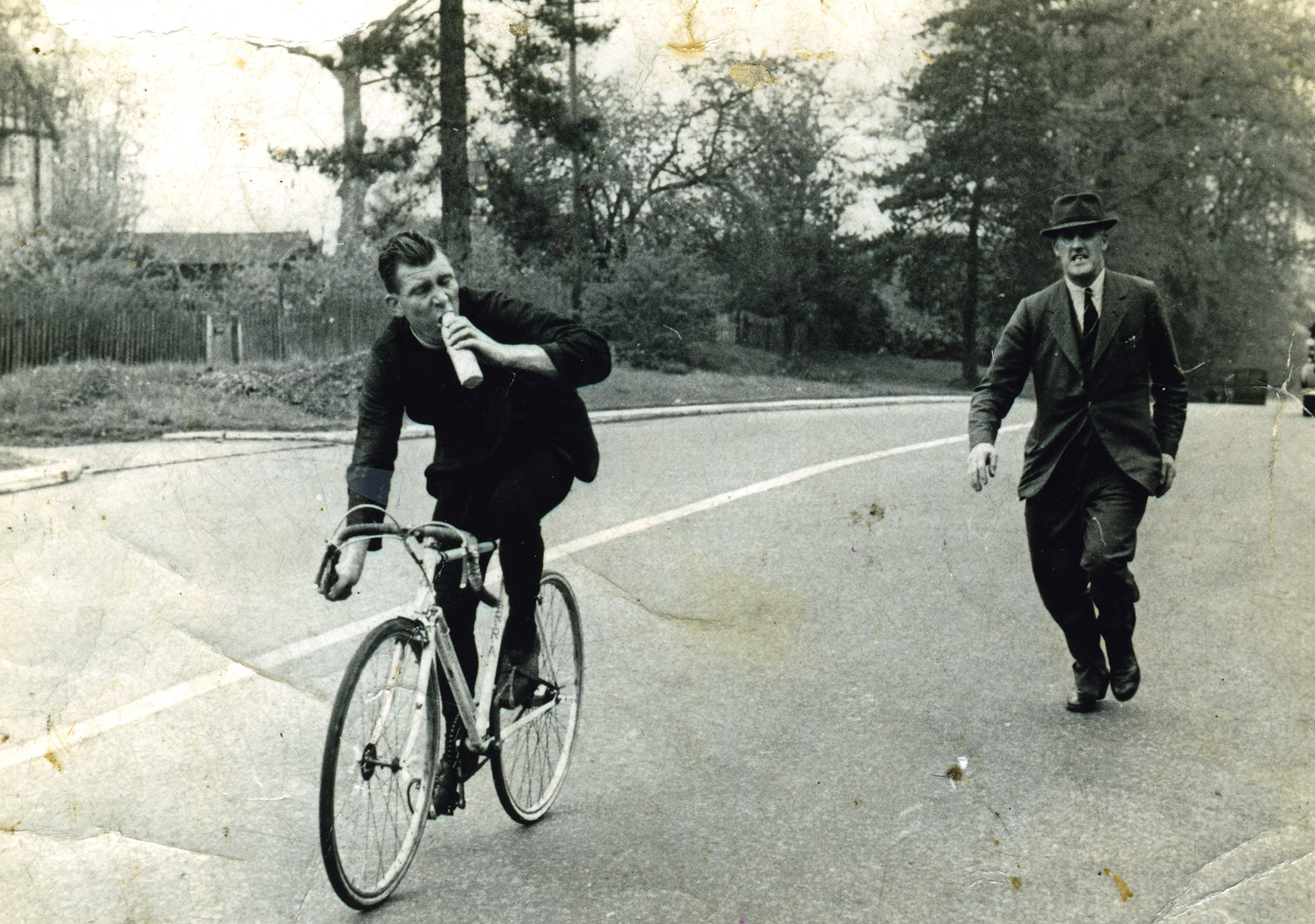
On July 21, Cycling sent editor H. H. England to witness Tommy’s riding for the day and verify he really was riding the distances he claimed. Consequently Tommy put on quite a show. He’d typically rise at 4-5am and get straight on the bike eschewing breakfast in favour of chewing gum. Fifty miles later he’d grab something to eat, eggs, tomatoes, rolls and butter, marmalade and tea if available, otherwise lots of water.
Tommy was a committed vegetarian after a bad experience in a Burslem pie makers where he had worked as a youth.
The first rider to set out to break the record for the most century rides in one year was Marcel Planes who rode 332 100-mile-plus rides, notching up a highly impressive 34,666 miles in a single year. Controversy struck though as Planes was found to be a sponsored rider, calling his amateur status into question.
His record stood until 1932 when Arthur Humbles set out to reclaim it as a display of the capabilities of the amateur cyclist. He added an additional 1341 miles to Planes’s total ending up with 36,007 miles. The cycle trade began to take notice.
These record attempts were getting a reasonable amount of publicity and what better way to show the reliability and longevity of a bike than have it break the year mileage record? Up stepped a new calibre of riders and from 1933 onwards the record was pushed increasingly higher culminating in 1937 with a staggering 62,657 miles by the Australian professional Ossie Nicholson.
Brief mention must be given to Walter Greaves, the one-armed communist amateur from Yorkshire who rode a customised gripshift bicycle to a staggering 45,383 miles in 1936. Greaves rode on through harsh weather, numerous crashes and a brief period in hospital finishing on New Year’s Eve having ridden an average of over 130 miles per day.
In 1938 there was no attempt upon the record.
In the first half of the year Tommy would have been accompanied by his sponsors and paced. On this particular day, with H. H. England watching on, he’d ridden 126 miles before noon, stopping briefly to eat bread and cheese at 11.30am.
Tommy’s routes are not well documented; newspaper articles state that he based himself in Hemel Hempstead and rode from there to places such as Devizes, Chippenham, Birmingham and Shrewsbury. On July 21 it appears that he was aiming for Land’s End, which he may well have achieved as he ended the day with 348 miles on the clock, each one verified by Cycling magazine.
At the height of the record Godwin was surviving on 40 hours sleep per week. He slept in fields if necessary, but was often taken in by cycling friends who remarked that: “Many a time Tommy turned up here completely exhausted and we had to bath him and put him to bed."
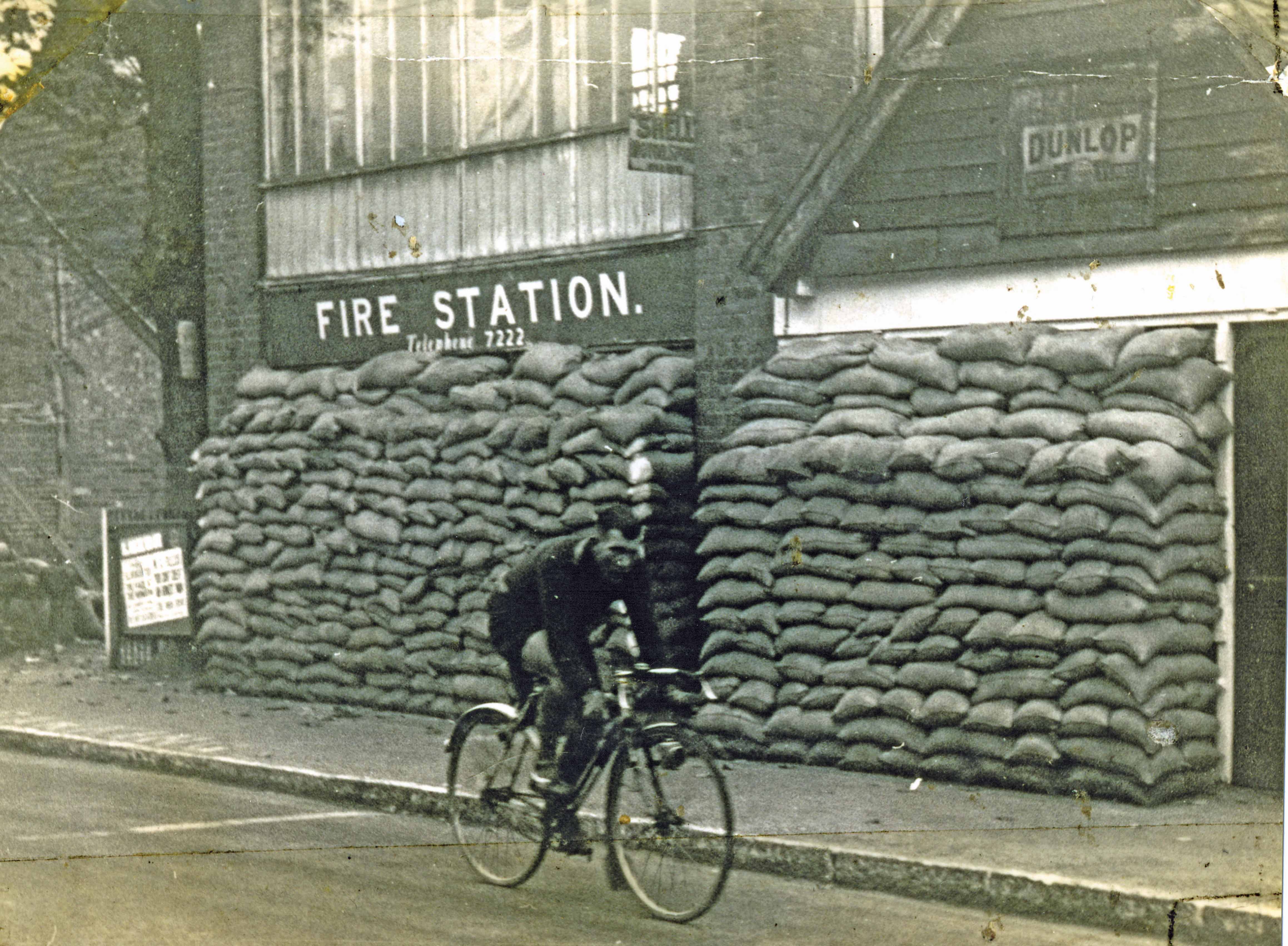
"Sometimes he was so wet we had to take off his clothes and wring them out.” Tommy did not have the benefit of modern technical fibres or waterproofs: he rode in woollens and even Wellingtons to fend off the cold and rain.
As they rode through the summer, and without pacers, Godwin and Bennett’s miles continued to pile up. Godwin passed Nicholson’s record on the October 26 1939, with two months and five days to spare. Bennett achieved this distance nearly a month later, then climbed off his bike and answered the call to war.
>>>>130 years of cycling - where it all began
Godwin, the last man standing, was allowed to continue, and on December 31, 1939 he’d racked up a massive 75,065 miles. But Tommy wasn’t content to settle with that — he continued riding until May 14 1940 setting the record for the time taken to 100,000 miles – within 500 days.
At the time, Godwin’s achievement was legendary within the cycling and wider communities. He met royalty, appeared on television, was interviewed by Richard Dimbleby on the radio, and lent his image to many a poster advertising cycling, food and drink products. The ride had taken its toll though and Godwin required a period of rehabilitation to teach him to walk properly with dropped heels and uncurl his hands. Yet within weeks he was serving his country as part of the RAF.
And the record now? In 2016 American Kurt Searvogel recorded 76,076 miles. However his ‘year’ started on January 10, 2015, so while he has logged the greatest distance over 365 days there is a question mark over whether or not it beats Godwin’s record. Briton Steve Abraham attempted the record, also in 2015, but had to abandon in March after he was hit by a moped and suffered a broken ankle.
Founded in 1891, Cycling Weekly and its team of expert journalists brings cyclists in-depth reviews, extensive coverage of both professional and domestic racing, as well as fitness advice and 'brew a cuppa and put your feet up' features. Cycling Weekly serves its audience across a range of platforms, from good old-fashioned print to online journalism, and video.